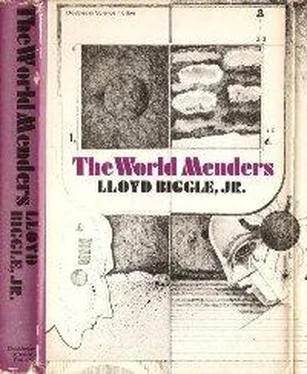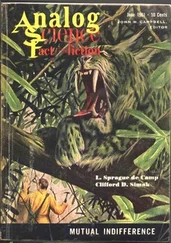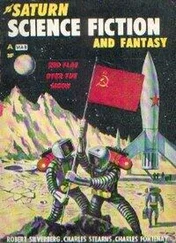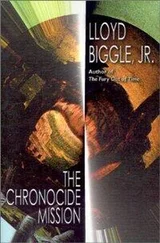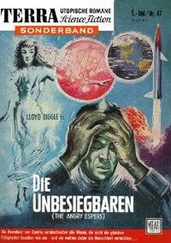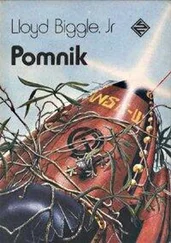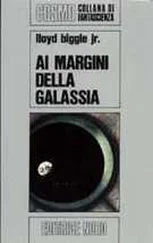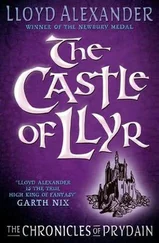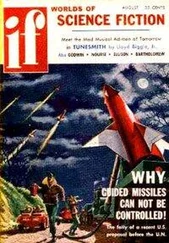Lloyd Biggle Jr. - The World Menders
Здесь есть возможность читать онлайн «Lloyd Biggle Jr. - The World Menders» весь текст электронной книги совершенно бесплатно (целиком полную версию без сокращений). В некоторых случаях можно слушать аудио, скачать через торрент в формате fb2 и присутствует краткое содержание. Год выпуска: 1971, Издательство: Doubleday, Жанр: Фантастика и фэнтези, на английском языке. Описание произведения, (предисловие) а так же отзывы посетителей доступны на портале библиотеки ЛибКат.
- Название:The World Menders
- Автор:
- Издательство:Doubleday
- Жанр:
- Год:1971
- ISBN:нет данных
- Рейтинг книги:5 / 5. Голосов: 1
-
Избранное:Добавить в избранное
- Отзывы:
-
Ваша оценка:
- 100
- 1
- 2
- 3
- 4
- 5
The World Menders: краткое содержание, описание и аннотация
Предлагаем к чтению аннотацию, описание, краткое содержание или предисловие (зависит от того, что написал сам автор книги «The World Menders»). Если вы не нашли необходимую информацию о книге — напишите в комментариях, мы постараемся отыскать её.
The World Menders — читать онлайн бесплатно полную книгу (весь текст) целиком
Ниже представлен текст книги, разбитый по страницам. Система сохранения места последней прочитанной страницы, позволяет с удобством читать онлайн бесплатно книгу «The World Menders», без необходимости каждый раз заново искать на чём Вы остановились. Поставьте закладку, и сможете в любой момент перейти на страницу, на которой закончили чтение.
Интервал:
Закладка:
On an impulse he said to her, one day when she brought his food, “You foresaw this, didn’t you?”
She turned a startled, wide-eyed gaze upon him.
“You foresaw that I’d be wounded?”
“I… yes—”
“Was that the real reason you took another kewl? To keep me at base?”
“I saw you lying in the road,” she said slowly. “And the spears, two of them. And the kru’s cavalry riding past. I thought you were dead. So I told Peter you’d never learn to think like an ol.”
“Since I’ve survived that, after a fashion, what’ll my next catastrophe be?”
She stared at him.
“What do you see in my future?” he persisted.
“Nothing.”
“Nothing at all?”
“Nothing.”
The next morning she was gone.
Farrari made a frantic search for her and finally found his way down the steep slope to the valley below, where he had seen an ol village. There he met the olz who had been taking care of him, but he did not know what they called Liano, and when he mentioned yilesc, a Rasczian word, they did not seem to understand. Probably she had fled with a kewl and a narmpf and cart, but he was much too weak to try to follow her. He could not even negotiate the path back to the cave, so he remained in the village.
The olz who lived there were the strangest he’d seen. They had ample rations and lavish supplies of quarm, and yet they did no work and no durrl harassed them. They started their nightfire at dawn and most of them slept through the day.
They were caretakers of the dead. At night some went forth and returned with dead olz, whom they carried to the burial cave. Others performed nightly obsequies in the cave. After Farrari became stronger, he went several times to the cave and remained in the background to observe. He saw the same shuffling ceremony he remembered, but without their supreme yilesc the olz performed it silently and committed the dead to the abyss without a spoken blessing. There was another peculiar difference: At intervals an ol would loudly grunt a word and all would collapse in silent prostration. Farrari puzzled long over the word, which meant speak, or talk, or answer. He could not decide whether they were importuning the absent yilesc or the silent dead; but the yilesc remained absent and the dead never spoke.
One morning Farrari climbed to a place of privacy a short distance above the village, found a comfortable clump of grass to sit on, and sternly told himself that if he were too weak for action he at least had no excuse for not thinking. He knew more about the olz than any non-ol on Branoff IV except Liano, who kept what she knew to herself, and he should be able to put that knowledge to use.
He suspected that the cave with the ol carvings in Bran’s valley had been a burial cave, which meant that the olz had not changed their method of disposing of their dead since those remote times when they were masters of Scorvif. The fact that the rascz not only tolerated this, but encouraged it by supporting the village of caretakers, meant that they somehow found it to their own advantage.
When an ol died, the olz of successive villages passed his body along until it reached a collecting point, from which the caretakers took it to a burial cave. There were probably several of these, each with its village of caretakers—one in each of the finger valleys, others around the perimeter of the lilorr. As for what the olz did with the piles of dead that accumulated during the winter or during epidemics, he hesitated to speculate. He felt certain that the distances some dead olz were carried would tax the credulity of an outsider.
What else did he know? That the olz wanted to die. Bran had grasped that, though for the wrong reasons. What, then, were the right reasons?
The olz wanted to die, but they never committed suicide.
The olz worshiped their masters, who starved and murdered them.
The olz made no effort to escape, no effort to defend themselves, no effort to secure a scrap of food more than what they were given even when starving.
They wanted to die, but their religion forbade suicide as well as violence and the taking of each others’ lives. Since they were forbidden to kill themselves or each other, could it be that they worshiped their masters because they starved and murdered them?
“A death cult!” Farrari exclaimed. “A people whose lives are dedicated to one thing and one thing only: dying!”
But why did they want to die? The end of all life was death, and anyone who meditated excessively upon that fact could in time develop a morbid philosophy. Even among a peaceful, prosperous people there would be diseases, accidents, frustrations, tragedies, and if their religion taught that death was a welcome release from life, that it brought instant translation to paradise, Elysium, eternal bliss, a people could come to prefer death to life. And if the people were conditioned to this preference from infancy.
He leaped to his feet excitedly. His first contact with the olz had come by way of a teloid cube that projected an ol woman being beaten to death. In the background several olz stood looking on, and Farrari had pondered the expressions on their faces.
He remembered them vividly: two men, a woman and a child watching a murder, and their faces expressed—ecstasy! Ecstasy and envy! They wanted to die, they envied those who died, they worshiped their conquerors who brought death to them with such lavish generosity.
The rascz had exploited this aberration cunningly, even working women of their own race into the ol religion to encourage the ol obsession with death. A people intent on dying would be very unlikely to revolt, and the olz never had.
Farrari sank back into the grass, made himself comfortable again, and asked himself a crucial question: Why had the IPR Bureau learned so little about the ol religion?
The olz had recognized the IPR agents! Not as aliens from outer space, they could not have comprehended such a concept, but they had recognized them as outsiders, and while they seemed to accept them and behave normally toward them, they kept to themselves matters that concerned only themselves.
Such as the ol religion.
Even Bran, as complete an ol as IPR had produced, knew nothing about the ol religion.
Now that Farrari did, or thought he did, he faced the problem of what to do with his knowledge. If he returned to base with it he would be a hero of sorts, in spite of his violation of regulations, and his information would be the subject of innumerable reports and would produce no result whatsoever. Farrari was laboring for the benefit of the olz, not the IPR files, so he would not return to base.
What he would do he did not know, but while he was deciding, and regaining his strength, he determined to learn the ol language—not the IPR version, but the genuine ol language, which Bran seemed to have glimpsed and Liano possibly knew something of, but which no other IPR agent knew existed.
He began at once. At night he visited neighboring ol villages openly, seeking news of Liano. He returned surreptitiously to eavesdrop, to listen for hours to the grunted speech around the nightfires when the olz did not know an outsider was present. He hid in the cave and listened to the death rites.
And he detected no differences, none whatsoever. Spoken privately, ol was the same threadbare remnant of a language that he had known from the beginning.
Читать дальшеИнтервал:
Закладка:
Похожие книги на «The World Menders»
Представляем Вашему вниманию похожие книги на «The World Menders» списком для выбора. Мы отобрали схожую по названию и смыслу литературу в надежде предоставить читателям больше вариантов отыскать новые, интересные, ещё непрочитанные произведения.
Обсуждение, отзывы о книге «The World Menders» и просто собственные мнения читателей. Оставьте ваши комментарии, напишите, что Вы думаете о произведении, его смысле или главных героях. Укажите что конкретно понравилось, а что нет, и почему Вы так считаете.
